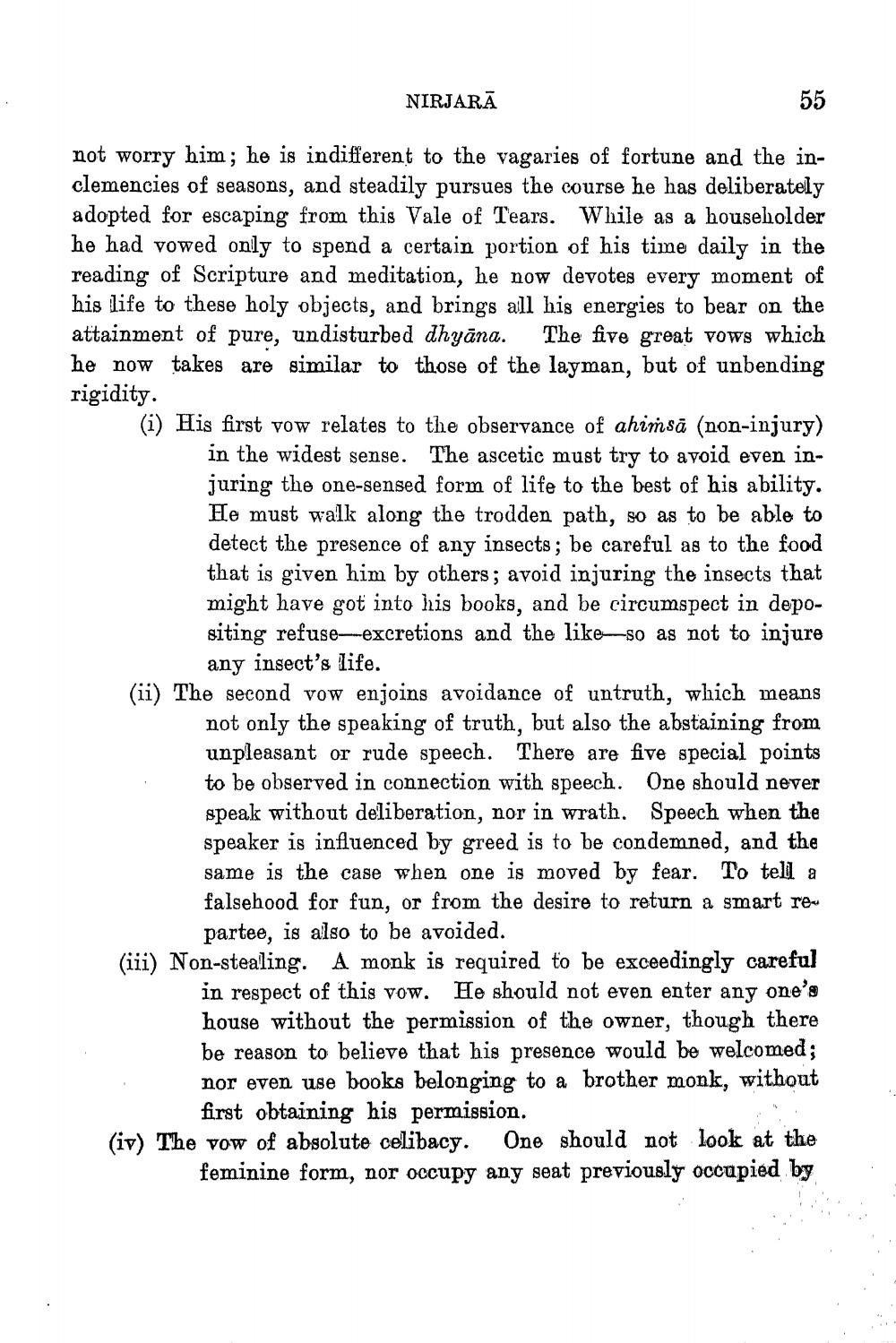________________
NIRJARĀ
not worry him; he is indifferent to the vagaries of fortune and the inclemencies of seasons, and steadily pursues the course he has deliberately adopted for escaping from this Vale of Tears. While as a householder he had vowed only to spend a certain portion of his time daily in the reading of Scripture and meditation, he now devotes every moment of his life to these holy objects, and brings all his energies to bear on the attainment of pure, undisturbed dhyāna. The five great vows which he now takes are similar to those of the layman, but of unbending rigidity. (i) His first yow relates to the observance of ahimsā (non-injury)
in the widest sense. The ascetic must try to avoid even injuring the one-sensed form of life to the best of his ability. He must walk along the trodden path, so as to be able to detect the presence of any insects ; be careful as to the food that is given him by others; avoid injuring the insects that might have got into his books, and be circumspect in depositing refuse-excretions and the likeso as not to injure
any insect's life. (ii) The second vow enjoins avoidance of untruth, which means
not only the speaking of truth, but also the abstaining from unpleasant or rude speech. There are five special points to be observed in connection with speech. One should never speak without deliberation, nor in wrath. Speech when the speaker is influenced by greed is to be condemned, and the same is the case when one is moved by fear. To tell a falsehood for fun, or from the desire to return a smart re
partee, is also to be avoided. (iii) Non-stealing. A monk is required to be exceedingly careful
in respect of this vow. He should not even enter any one's house without the permission of the owner, though there be reason to believe that his presence would be welcomed; nor even use books belonging to a brother monk, without
first obtaining his permission. (iv) The vow of absolute celibacy. One should not look at the
feminine form, nor occupy any seat previously occupied by
:




